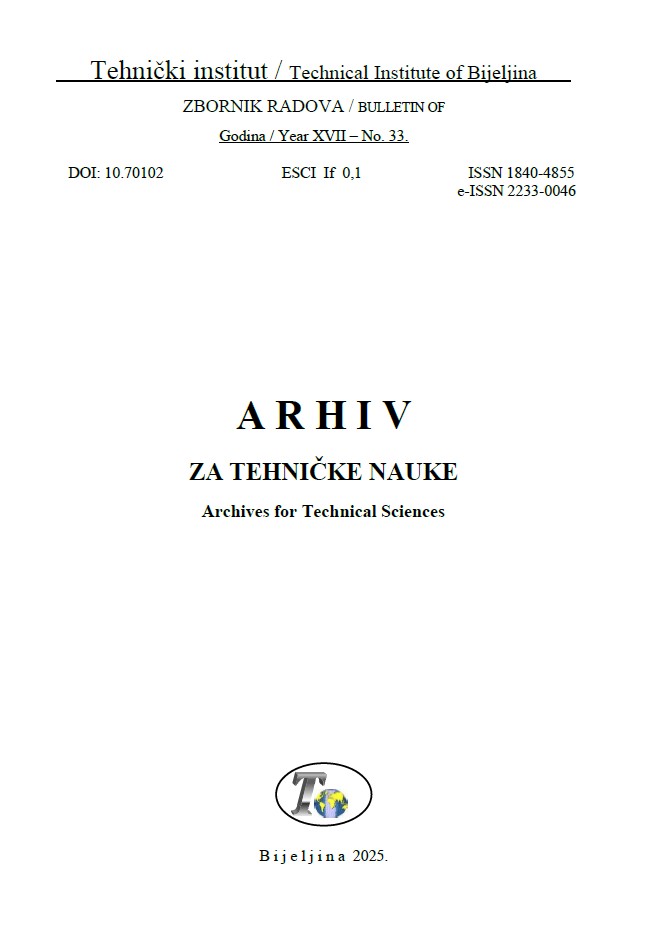COMPARATIVE ASSESSMENT OF ENVIRONMENTAL AND CULTURAL FUNCTIONS OF DIFFERENT TYPES OF RESIDENTIAL DEVELOPMENT IN TASHKENT
This paper provides a comparative evaluation of the environmental and cultural roles in residential forms in Tashkent, Uzbekistan, focusing on the conflict between the traditional low-density "Mahalla" residential areas and modern high-density buildings. As Tashkent rapidly urbanizes vertically, assessing the trade-offs between social cohesion and ...
By Tatiana Kharitonova, Ksenia Merekalova, Alexander Tikhonov, Shavkat Sharipov, Dilfuza Shabbazova, Samidullo Elmurodov, Munisa Bekmukhamedova, Ulugbek Eshqarayev
ANALYZING THE ROLE OF SOCIAL MOVEMENTS IN INFLUENCING POLICY CHANGE IN POST-COLONIAL UZBEKISTAN
Uzbekistan is a country in the post-colonial environment of Central Asia, which has undergone a stage of rigid isolationism before passing to the stage of authoritarian modernization. This article examines how social movements have been changing to affect policy change in this particular geopolitical region. However, the traditional position regard...
By Mirkomil Gudalov, Nemat Kushvaktov, Dilrabo Quvvatova, Elvina Azimova, Nafisa Samatova, Aynur Yeshmuratova, Rustamjon Khudayberdiyev, Umida Usmonova
HEALTHCARE DATA EXCHANGE IN THE ERA OF BLOCKCHAIN AND AI: A SURVEY ON METHODS, CHALLENGES, AND ARCHITECTURES
Background: Interoperability, privacy, and the background of healthcare information are significant issues in the healthcare industry, mainly because of the fragmentation of the data. Conventional solutions are not secure, transparent, and accurate enough to share data effectively. Purpose: The purpose of the study is to examine how blockchain and ...
By K. Deepthika, Dr. I. Bhuvaneshwarri
THE FACULTYMAX MODEL FOR ENHANCING FACULTY PERFORMANCE AND ACADEMIC EXCELLENCE
Academic excellence is highly valued by faculty performance. The conventional faculty review systems tend to fail to give a holistic evaluation of faculty input in teaching, research, and service. FacultyMax Model is a multidimensional framework presented in this paper to improve the performance of the faculty based on the data analysis, incessant ...
By Abdusamiev Dilmurod Abdugani Ugli, Mamajonov Dilshodbek Adxamovich, Ortikov Elyor Abdumajidovich, Bekmirzayev Mirjalol Xusanboy Ugli, Abdullayeva Shakhnoza Anvarovna
EXPLORING THE ROLE OF DIGITAL TWINS IN ENHANCING OPERATIONAL EFFICIENCY AND DECISION-MAKING IN INDIAN MANUFACTURING FIRMS
Indian manufacturing companies are progressively implementing Industry 4.0 technologies to enhance the level of operational efficiency and the managerial decision-making process; nevertheless, there is limited empirical evidence of how the adoption of the Digital Twin (DT) affects performance, especially in the emerging economy environment. This re...
By Roohee Khan, Ashu Nayak
DATA SECURITY AND PRIVACY PROTECTION MECHANISM FOR POWER GRID SUPPLY CHAIN BASED ONDUAL-CONSORTIUM BLOCKCHAIN ARCHITECTURE AND IMPROVED BGN ALGORITHM
In the process of multi-party collaborative data sharing, the power grid supply chain system often faces security risks such as data islands, privacy leakage and tampering risks. It is urgent to establish a security management mechanism that takes into account efficiency and credibility. To this end, this study proposes a power grid supply chain da...
By You Wen, Mingjun Tang, Yijun Yang, Hong Luo
LOW-COST REMOTELY-OPERATED VEHICLE NAVIGATION WITH GPS AND RF LORA INTEGRATION
In recent decades, remote-controlled vehicles (ROVs) have attracted significant attention because of their potential applications in healthcare, medicine, agriculture, and civilian information. In this article, we investigate the development of low-cost mobile robots equipped with a global positioning system (GPS). GPS-assisted robot is used to pro...
By Huu Khoa Tran, Viet Thang Le, Thanh Trang Tran, Van Dung Nguyen
CROSS-PLATFORM HATE SPEECH DETECTION BY TARGET CATEGORY: EVALUATING TRADITIONAL AND TRANSFORMER MODELS ENHANCED WITH SMOTE
Societal and technological challenges are significant when it comes to cyberbullying, which is an ubiquitous issue in the social media space including Twitter, Facebook, YouTube, and Instagram. This paper will focus on the identification of hate speech that targets particular individuals, especially in the context of the data in Hindi language. It ...
By Rachna Narula, Poonam Chaudhary
PREDICTION OF TOXIC-METABOLIC DISORDERS AT EMERGENCY CONDITIONS USING MULTI-LABEL CLASSIFICATION IN MACHINE LEARNING
Diagnosing critical conditions like Acute Liver Failure (ALF), Methanol Toxicity (MT), Alcohol Poisoning (AP), and Diabetic Ketoacidosis (DKA) is difficult due to similar symptoms and complex interdependent metabolism, often resulting in delayed and incorrect diagnoses in historic clinical practice. We present a hybrid machine learning framework in...
By S. Ramadoss, A. Kumaravel
DESIGNING THE EDUGROWTH MODEL TO OPTIMIZE STUDENT SUCCESS AND ACADEMIC PERFORMANCE
The EduGrowth model will maximize student success and academic achievement through a combination of individualized learning approaches, student service, and student data-based decision-making. The paper discusses the main aspects of the model and its implementation in learning institutions. It emphasizes the need to customize learning strategies ac...
By Najmitdinov Akhadkhon Khamitdkhanovich, Ibragimov Ulmas Rakhmanovich, Azizov Azizbek Sabitkhanovich, Dadajon Dadabayev Rustamovich, Abdumutalliev Abdulakhad Abdusamad ugli






